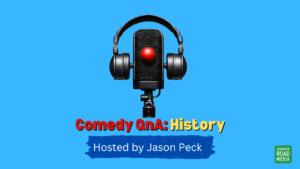Fellow blogger and speaker Eric Feng made an interesting post over at The Public Speaking Blog back in August on whether an award-winning speech at Toastmasters can be considered an excellent speech. Here’s how the article opens:
“A couple of days ago, I raved about having a female winner for the International Speech Contest held by Toastmasters International. This competition is akin to the Olympics of public speaking. Anyhow, one of the readers (Simon from UK) commented that “a Toastmasters competition is not the best way to measure skills as a public speaker…” and he sees “competitions as a bit too artificial to give a decent idea”…”
After reading the whole article myself I think that you can have an excellent speech that wins a contest, but it doesn’t automatically guarantee that you”’ have the skillset to become a professional speaker. Sure it can help, but it’s not an automatic pass. To my knowledge speakers like Tom Antion haven’t won any Toastmasters contests (not an international level at least) and that hasn’t stopped him from becoming a well-paid, highly sought after speaker.
The post also received comments from some pretty big name speakers such as Lisa Braithwaite, John Kinde, Brad Montgomery and Rich Hopkins. It’s interesting to see their different perspectives.
For myself I have competed in competitions and I’ve skipped some too. Whilst it’s fun to compete and nice to win, there’s always the times when you lose as well. Losing doesn’t necessarily mean to say that you’re no good or delivered a bad speech. It’s just one of those things on the night and it’s very subjective.
You also have to remember that if you want to work professionally then you won’t get paid to deliver a speech between 5-7 minutes in length. A keynote for instance is usually anywhere between 30-60 minutes; averaging around 45. If you compete or work professionally each takes a different skillset. In 2006 I entered and lost the Humorous Speech contest, at my then club, because I had no structure not because I wasn’t funny. It was an important lesson to learn for those specific circumstances.
This loss didn’t stop me from getting an M.C. job earlier this year. I was funny within the context of what they were after. I did the job, made the audience laugh and so on. No-one cared that I’d lost that 2006 contest, because I was able to deliver the goods for those given circumstances. So I guess it’s all relative. Some people compete in every contest every year. If that’s something that you want to do, then that’s great. But until the next step is taken to transition to getting paid gigs, then a speaker will only be good in a particular situation of Toastmasters International. Don’t forget Toastmasters isn’t even the only public speaking organisation in the world.
Check out the article that inspired this post by clicking here



